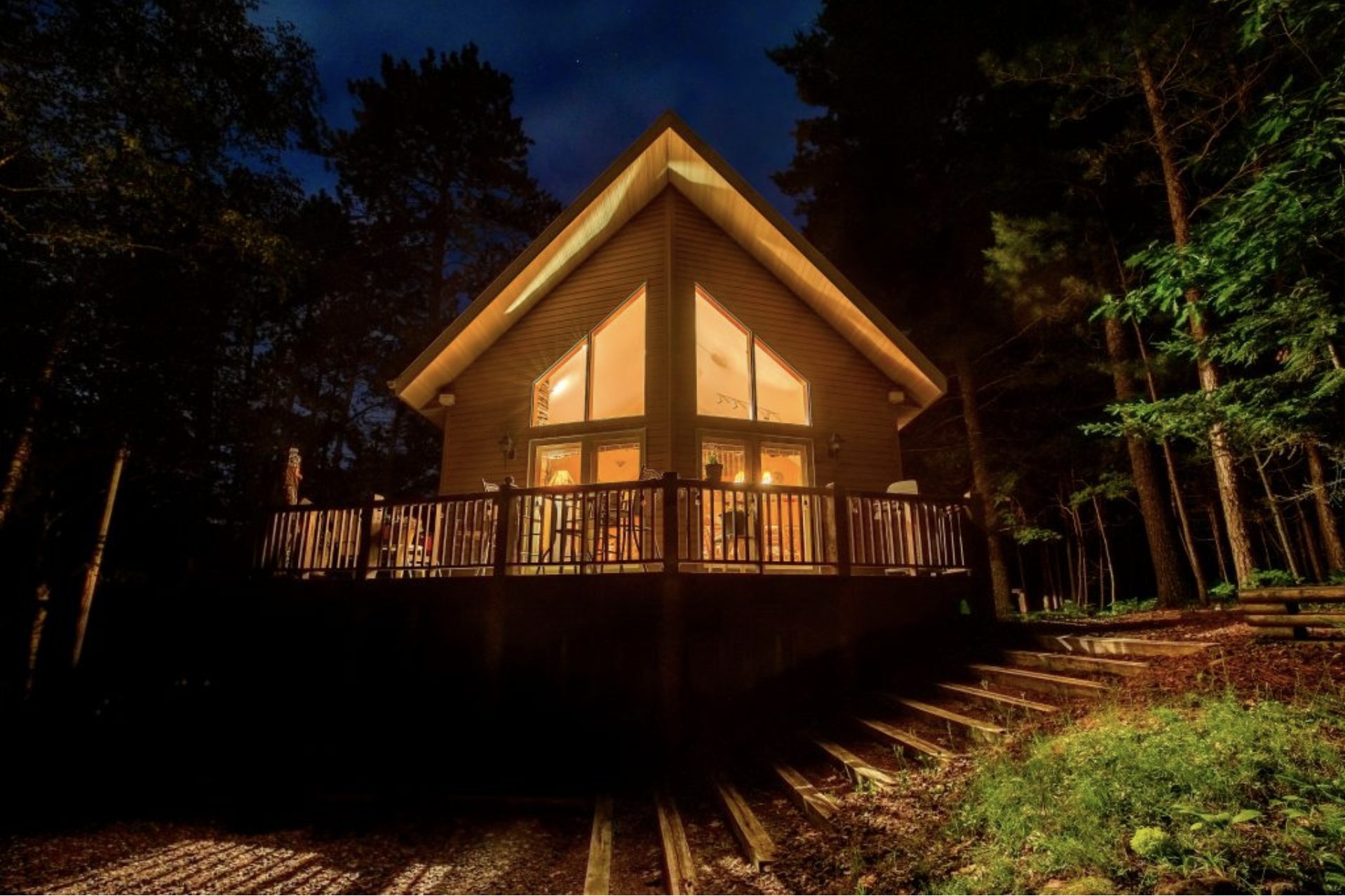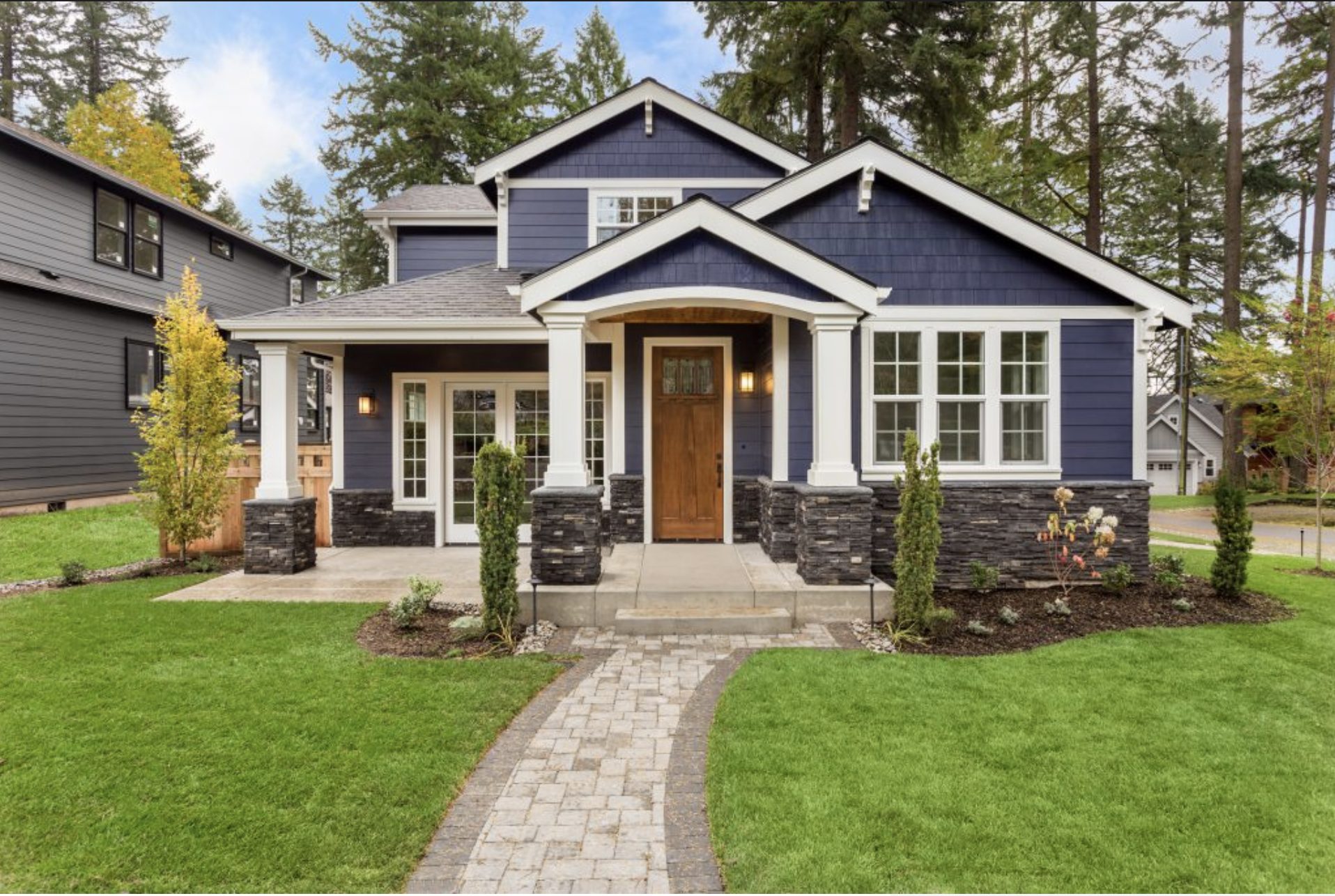Social Links Widget
Click here to edit the Social Media Links settings. This text will not be visible on the front end.
Market trends give investors plenty to think about


Rental property investment can be a lucrative venture when market conditions are favourable. As vacancy rates fluctuate and rental demand shifts, investors and landlords have opportunities to maximize the value of their investments.
Rental markets across different regions can vary significantly, with some areas experiencing low vacancy rates and others facing higher competition. These market dynamics often influence rent prices and can contribute to broader economic trends.
In this context, savvy investors could benefit from strong rental incomes while also contributing to the housing stock in their communities.
As an experienced agent who has worked with numerous landlords, I’ve observed that the amount you can charge for rent depends on various factors, with the property’s condition being a crucial element.
While location significantly influences rental income, offering a well-maintained property is key to attracting quality tenants and maximizing your returns.
Below, I’ve compiled a list of issues that can deter potential tenants and negatively impact your rental income. By addressing these factors, you can enhance your property’s appeal and potentially increase your rental yields:
Up and comers
Neighbourhoods experiencing increasing popularity and attracting younger residents are ideal hunting grounds for investment properties. Prices will be below those of more established areas, offering good capital growth in the medium to long term.
Limit risk
Diversify your investments. Don’t plough all your money into one neighbourhood or even the same city. Your portfolio should be spread over several geographies to protect yourself from local volatility.
Cash conscious
Attracting good quality tenants is essential to your success. You can only do that by offering quality accommodation. However, you don’t have to buy gold faucets and the best of everything to do it. Purchase mid-range fixtures and fittings.
Debt danger
Don’t overleverage yourself. The rental market is producing record income for investors today, but don’t let a couple of empty properties tip you over the fiscal edge.
Favorite rentals
There’s pretty much a market for every type of property right now. Over the years, however, the family home has proven the most reliable at attracting loyal tenants and substantial income.
NOTE: The information in this article is general and provided as a general overview only. Always consult your financial advisor or accountant for advice specific to your circumstances.
Is flipping property an investment strategy for you?


It’s hard to find a more ambitious property investor than a flipper.
These are the folks who buy rundown properties, fix them, and then sell at a profit in just a few months.
If you like the sound of generating wealth from flipping properties, be aware you’ll need to be super-smart at spotting real estate trends, valuing property and estimating building costs.
The best flippers know a bargain when they see it but never purchase without a clear vision of the next buyer.
They’re tough negotiators, and once they have the keys, they’ll only repair the property to a level that will find a market of potential buyers and return a profit.
To be a flipper, you also need access to cash. You’ll need to find funds for a deposit on a loan to buy a property and cover the repair costs.
As an experienced real estate agent in the neighbourhood, I’ve worked with many flippers who have made handsome profits from their projects. Some will buy dilapidated properties, but there’s also a more conservative version of the flipper.
These folks buy undervalued but not rundown properties. They renovate rather than repair and organize their finances to ease time pressures.
However, all flippers play a high-stakes game. So, consider the downside before you start working out how you’ll make millions by flipping properties.
Flippers are often highly leveraged, and a failure to sell can cause them financial stress. Dips in the economy and a sudden oversupply of properties in the neighbourhood can drive down the anticipated asking price.
If you’re considering this style of property investment, I’d be delighted to discuss with you the current opportunities in our area and the buying trends and prices we’ve seen in the last few months.
In the meantime, I’ve compiled a quick list of issues you might want to consider before becoming a flipper.
- Quick profit – If you get flipping right, you will be paid handsomely for your investment. A big plus is that your capital will only be tied up for a short period, and you can move on to the next property.
- Do your research. You must understand the neighbourhood and be aware of buying trends and prices. You can’t play this game blindfolded.
- See the big picture – Economic sentiment and the mood of the real estate market can turn in a matter of a week or two. So, you need to be confident the prevailing market conditions will continue or improve.
- Who’s your buyer – A flipper won’t fix up a home and hope for the best. They’ll have a real sense of which market segment will produce potential buyers. Any improvement that’s made will be designed to appeal to these folks.
- Know your costs—You must be able to estimate quickly the likely investment required to get a property back into shape for sale. This will determine the price you’ll pay for the property and your potential profit.
- Focus on value – You and your agent will be determined to buy at a specific price. If the seller doesn’t play ball, you walk away.
- Find your buyer – With the work done, the marketing campaign should be short and focused. Knowing your target buyer makes this possible.
The opportunities of fixer-uppers in a hot market


A trait of a booming market is buyers’ desire to find a bargain by seeking out properties that need remodelling or redevelopment.
It’s an excellent way for investors, property developers, and, in some circumstances, first-time buyers to enter the market.
But your prospective purchase might prove riskier than anticipated unless you’ve researched your target property.
As an experienced real estate agent in Saskatoon, I always advise my clients to avoid cutting corners to get ahead of rival buyers, especially in a strong seller’s market.
Folks with the funds to rush into a deal can find themselves with unforeseen building repair bills that run into six figures or a remodelling plan that angers local authorities.
Older buildings can be subject to various rules to preserve their character. You might be prevented from altering the original form, and there could be restrictions on materials and colours.
To ensure your fixer-upper project is a success, here are some tips.
- Before making an offer, check with the local planning authority to see if any issues might affect the remodelling. Ask about whether there are any rules regarding modernizing the building, as this may affect the neighbourhood’s character.
- Understand the property’s history. Has it always been a residential site? Has the land ever been zoned for commercial purposes? If so, you may need to look more carefully at issues such as soil contamination.
- With apartments, are you thinking of buying in a mixed-use building – that is, one that includes retail or office space as well as residential? If so, you should ask about local zoning plans to understand how the neighbourhood will likely develop and change in the years ahead.
- Check the condo rules, if applicable, about what you can and cannot do regarding internal remodelling.
Please do not hesitate to contact me if I can help you secure your dream investment property or sell your existing property.
Six tips for buying a great vacation rental


Owning a vacation rental or working towards a life in the countryside are fabulous ambitions for those who have already invested in real estate.
Owning your own home can give you many life choices down the track, especially when the family has grown up and moved out. Having a second residence or vacation rental is one of those #lifegoals achievements.
But is a vacation rental a sound investment?
While it can be the base for fabulous memories for you and your family, what is the possibility that you might make some money along the way by renting it out, using a property manager, Airbnb, or similar services?
As an experienced agent, I’ve learned that a vacation rental is rarely a get-rich-quick scheme. Your income will depend on the style and size of the property and the area in which you buy.
I’d also suggest that finding a profitable vacation rental requires more research than any other investment property.
It’s a good idea to talk to a local real estate agent such as myself about the area’s property values and vacation rental levels. You might also get some help online from Airdna (yes, Airdna!), which measures revenues and occupancy rates.
Here are a few issues to consider if you’re thinking of investing in a vacation rental. I hope they prove helpful to you:
- Revenue can be seasonal – It’s a rare property whose income doesn’t ebb and flow with the seasons. And remember, you can attract higher rents in peak periods. The downside might be when you wish to spend your time at the property.
- Location is critical—it will determine your income more than any other factor. Properties near a lake and a tourist spot will do very well compared with those in a town several kilometres from the nearest attraction. Try to find somewhere that’s a popular destination.
- Calculate costs—Due diligence is critical to ensure the rental does not become a cash-flow headache. Be sure you can handle any mortgage costs, insurance, taxes, maintenance, cleaning, and the rental company’s fees.
- Don’t underestimate maintenance. The property may stand empty for weeks at a time, which can lead to problems if left unattended.
- Check tax benefits – Use a professional financial adviser to maximize any opportunity to gain tax advantages and write-offs from your rental.
- Don’t be blindsided – If you spend a certain number of days in a vacation property or more than 10% of the days it’s rented, you could lose all tax benefits. Talk to your professional financial adviser to get the latest tax rules.
Nine-point strategy to find your ideal investment property


Finding a great investment property requires due diligence and discipline around the organization of your finances.
You need to be on top of mortgage and tax obligations and potential income and tax benefits and write-offs you’ll receive.
Focus on the anticipated financial benefits from an investment property: are you seeking an outright profit from day one, or is the purchase strategic to minimize tax or develop a long-term wealth portfolio?
As an experienced agent in Saskatoon, I’ll always suggest to my investor clients that they seek professional financial advice to avoid unforeseen costs.
Picking the right property in which to invest requires an equal amount of attention and research. And if you’re looking at an investment property right now, you’re likely ahead of the curve.
To help you search, I’ve listed nine critical considerations in deciding on an investment property. If I can assist you in locating a suitable apartment or house, please do not hesitate to contact me.
- Vacancies—Always look at the number of vacant rental properties in the neighborhood. You don’t want to invest where there’s an oversupply of properties—it’s a sure sign that rents will be going down.
- Rental income – Compare the rents being asked for similar properties. Can you make your numbers work at the going rate?
- Future developments—Are any significant new property developments about to come onto the market? A release of several hundred apartments places pressure on rental incomes and can result in a short—to medium-term fall in values and rental competition.
- Employment – Neighborhoods with readily available employment are usually rental solid performers. Find out about major local employers in your target areas. This can be positive if there is a strong hospitality and casual workforce, which is usually evident in tourism centers and university towns.
- Entertainment – Finding a location close to cafes, restaurants and movie theatres is gold if you want an apartment with young professionals as tenants.
- Neighbourhood—The locality influences the type of renter. Any location near a university or major hospital will attract students, lecturers, doctors, nurses, and others employed in those institutions.
- Schools – A rental property near a school with an excellent reputation can be an effective investment strategy, especially if you’re considering investing in a house. Families who rent are usually longer-term tenants. You may struggle to find a tenancy if education requires a long bus trip.
- Crime—Check local crime statistics, as vandalism and petty crime can diminish the value of your investment and diminish your returns.
- Taxes—Do your due diligence on your preferred locations. Look for areas with higher property taxes and local tax levies.
I hope you’ve found this list helpful. If I can help you secure an investment property, please do not hesitate to contact me. We can discuss tenant preferences and rental income trends and the best way to attract long-term reliable renters for you.
Eight buying tips as Canada waits for rebound


Industry data shows buyers oversee the property market, unsure how the latest cut in interest rate will affect prices against a backdrop of economic challenges.
Savvy buyers are already on the move, convinced values will rebound as the cost of mortgages falls.
It’s generally accepted that any central bank needs to cut rates by 1% to convince buyers to change their cautious behaviour.
Pundits reading the financial world’s tea leaves are convinced the Bank of Canada will cut even deeper into 2025. As a result, savvy buyers are active now, determined to strike a deal before property values rise due to cheaper access to loans.
Affordability is still an issue, but these buyers believe the short-term pain of today’s 4.25% mortgage rate will be worth the discount of buying at today’s prices.
We are already seeing this trend emerge.
The Royal Bank of Canada (RBC) reports that home resales were up 1.3% between July and August. Inventories are growing, too—they’re double the level of 2021.
And the MLS Home Price Index remains steady at $717,000, a 3.9% decline from 12 months ago.
The biggest unknown is the state of our economy, primarily as job security significantly influences property market confidence.
RBC said in a recent report that the labour market was “softening at a pace and magnitude consistent with prior recessions.”
However, it added that 80% of the rise in unemployment has come disproportionately from students and new graduates. So, the jobless rate of 6.6% is slightly misleading.
Here’s how to respond to today’s market as a buyer:
- Prioritise Search: The market moves quickly, and buyers wanting to capitalize on the current situation know they don’t have months to hang around. Focus on your target areas and the type and size of property you desire.
- Cash is king. Get your finances in order. Get a pre-approved mortgage so you can make offers with confidence.
- Talk to Agents: Demonstrate to an agent that you’re aware of the market’s current status. This signals that you’re an informed and serious buyer.
- Don’t Rush: The window of opportunity won’t last forever, but never rush into a decision. Don’t let FOMO (fear of missing out) sway your judgment.
- Due Diligence: There’s no excuse for skipping essential steps in the buying process. Always order a building inspection.
- Start Negotiating: Be ready to act decisively. Your research will give you a firm idea of the home’s value. If you’re serious about a deal, don’t low-ball. Make an offer and justify how you came to that number. Leave cash in reserve in case you need to give a little ground.
- Juggling Act: If you find more than one dream property, negotiate on multiple fronts. No rule says you can only focus on one property at a time.
- Extra Care: Always insist on conditions as part of your deal. These would include the property passing a building inspection and your ability to obtain the necessary finance.
Seven shopping tips to find your dream home


Searching for your dream home can be an exciting experience. You get to explore different housing styles, check out new locations, and consider the kind of decor you love.
To help the process go smoothly, it’s a great idea to spend a little time and effort listing the features you want in a home before you go shopping.
This goes beyond the style of housing and includes the type of neighbourhood you wish to live in.
Savvy buyers also consider the long-term picture, such as the likely capital growth in value over a minimum five-year period.
Once you have this essential list sorted, it’s time to look for homes where you can streamline your must-have and like-to-have lists.
Here’s our top tips to get you started:
Price is right
Your budget will determine most things. There’s no point in seeking a seven-bedroom home if you have a budget for a one-bedroom apartment. Having a pre-approved loan is best for being clear on your budget.
What’s your style?
Are you seeking a modern home, an older renovated one, or a fixer-upper? If you’re seeking an apartment, what type of building and features, such as security and parking, do you need?
Location is key
While prices may force you to be flexible, it’s important to know where you’d like to live and those you wish to avoid. Listing desirable amenities and services like transport or schools will help you decide between suburbs.
Lost in space
Be clear on the minimum space you need, especially if you’re starting a family or your children will be teenagers in the next few years. Some buyers will only visit homes if they meet their minimum size requirement.
Must-haves
Common priorities include a minimum number of bedrooms and the size of the yard. This list must be the non-negotiables.
Nice-to-haves
You can be far more flexible with this list, but it is no less critical. Homes that do not tick half the boxes on this list are probably unsuitable.
Street smart
Think about the kind of street you want to live in. Are you seeking the hustle and bustle of an inner-city location, a quiet cul-de-sac in the suburbs, or something in between? Maybe you would be happy living on a main road, knowing that you will likely get a price discount and are not at home during peak hours. These are all things to consider.

 Facebook
Facebook
 X
X
 Pinterest
Pinterest
 Copy Link
Copy Link